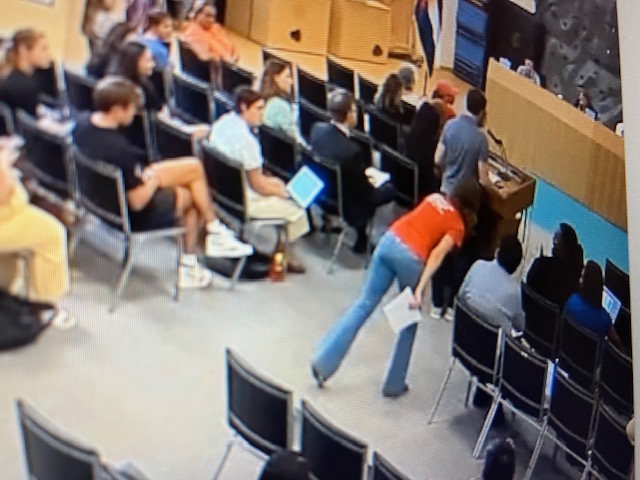Denver school board members celebrated a 94% COVID-19 vaccination rate among school employees on Monday, but they now have to decide what to do about the 217 employees who haven’t complied with the vaccine mandate.
The number of DPS employees deemed “out of compliance” with the mandate includes 13 teachers, 35 paraprofessionals (teaching assistants), 24 meal operations employees, 23 custodians and 37 bus drivers. These numbers may seem relatively small, but they’re not all the departments within DPS — just those with the highest numbers of out-of-compliance employees.
Also, if those jobs are terminated, they’ll be tacked onto the already existing 42 bus driver openings, 96 food service openings and 525 teacher and paraprofessional openings.
“If we have 13 teachers who are out of compliance, we still have 102 teacher openings,” DPS Interim Chief of Talent Jenifer Jones said during a school board work session Monday. “When you layer on the out-of-compliance staff with the existing vacancies that we have, it exacerbates the problem.”
There’s also a shortage of substitute teachers, with about 350 requests for substitutes sent out per day (half the number of substitutes in the system) and 130 central office employees who have volunteered to substitute whenever they can.
Given the pandemic, the district has had to figure out how to cover classes without increasing in-person class sizes.
“We’re looking at every possible creative solution to take some of that water level down when it comes to the impact on schools,” said DPS Operational Superintendent Amber Elias. “As a very very last resort, with safety as the priority, we have approved a number of temporary moves to remote operations.”
Some schools have already had to make that switch, and are teaching remotely through this week, including George Washington High School, Dr. Martin Luther King Early College and John H. Amesse Elementary School.
Additionally, in a press release last Friday, DPS superintendent Dr. Alex Marrero announced that this Friday would be a non-attendance day for the entire district, in part to give educators a chance to refresh and recharge after a challenging start to the year.
When asked whether more of these shifts to remote learning are likely between now and the end of the school year, DPS spokesperson Will Jones said the district will tackle the issue on a day- to-day basis. He said operational superintendents (like Elias) connect with principals in evening and early morning hours, check in on staff members and do whatever else they can to support those working in person.
“Sometimes that includes having members of the central office team go and support those schools,” Will Jones said in an email. “When that is not doable, we do our best to give our families as much notice as possible of the need to transition to fully-remote learning.”
According to DPS Chief Operating Officer Jim Carpenter, though, the most threatening staff shortage is likely in transportation services.
“Any loss of drivers really puts the system in a place where we will see some pretty significant service impacts, things like delays that would be 30 minutes or more, or the need for some sort of service reduction,” Carpenter said.
Carpenter said the situation with food service is not as dire, but there could be some “site-by-site” effects — in other words food service employees could be transferred to other schools to balance the overall shortage.
Talking solutions, Jenifer Jones said the district is “doubling down” on some of its recruiting tactics, including social media promotions, college career fairs, advertising, hiring and referral bonuses, and increased guest teacher pay.
“We have billboards out in Denver, we have yard signs out in [front of] schools, we have banners at sporting fields,” she said. “There’s not one silver bullet to solve the problem.”
Board member Scott Baldermann suggested another solution, specifically to the transportation staff shortage: issuing students public bus and light rail passes.
“We’re in an emergency situation now … we need to think creatively of what we can do to help with our bussing issues,” Baldermann said.
Carpenter said this could be challenging because Denver’s Regional Transportation District (RTD) system is experiencing its own staffing shortage and service reduction. But he also said this service already exists for high school students and that they’re open to talks of expanding it to younger students.
The problem could still worsen, though. The board votes this week on whether to terminate employees who don’t get vaccinated without a medical or religious exemption.
Acknowledging both how difficult a decision like that can be and the work done to bring as many as 94% of DPS employees to get vaccinated, the board collectively agreed to keep up the effort to get the rest of the employees vaccinated so they can keep their jobs. Board member Tay Anderson said he understands hesitancy to get vaccinated in Black and Brown communities (given a history of medical mistreatment in those communities), but he urged anyone listening in on the board’s work session to get their shot.




